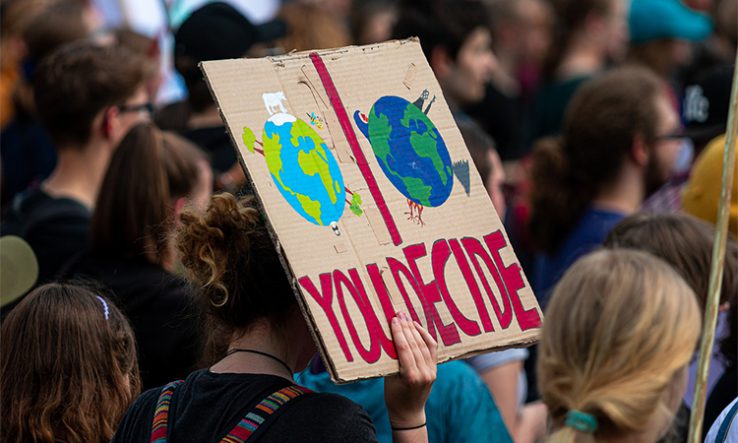
Comparing lobbying revelations with Climategate highlights changes in science and the media, says Alice Bell
On 17 November 2009, the climate scientists who edited the RealClimate blog found they had been hacked. The hackers had started a draft post: “We feel that climate science is, in the current situation, too important to be kept under wraps.
“We hereby release a random selection of correspondence, code and documents.”
This random selection constituted thousands of emails and other documents taken from a server at the University of East Anglia (UEA).
RealClimate caught the post before the hackers could publish, but many others were keen to promote the cache, presenting scientist-to-scientist correspondence as the smoking gun that climate change was a hoax.
The fuss gradually dissipated—anyone who wasn’t already a committed climate sceptic soon realised there wasn’t much to see—but it caused immense distress to some of the scientists involved.
Contrast this with a much more recent leak. This time around, it wasn’t a hack but an old-fashioned passing of documents to the press, via Greenpeace UK’s investigations unit. And the documents were less mundane than the UEA emails, showing fossil-fuel and meat-producing nations lobbying the Intergovernmental Panel on Climate Change to water down its statements.
Some academics bristled at this new leak. Yet again, something they saw as run-of-the-mill was being presented as scandalous. This was perhaps understandable. The scars of 2009’s Climategate still show, and it’s not as if harassment of climate scientists has gone away. Plus, it remains unusual for discussions like these to make their way into the public sphere—it’s just not the done thing to expose the sausage factory of science-policy reports to public view, and some involved worry what the response will be.
But the differences between the two incidents and how they have been received show how far public discussion of climate policy has come. Now it is politicians, not scientists, who stand accused of doing the distortion, and activists for climate action, not sceptics, pushing the story.
Public reception
Sceptics are on the back foot, as shown by the recent rebrand at leading UK sceptics the Global Warming Policy Forum, which now calls itself Net Zero Watch.
Sceptics’ views never really landed with the British public, and over the past decade the media have given them progressively less space.
A 2011 BBC Trust review of science coverage (disclosure: I played a small role in the research) argued that the corporation gave too much weight to fringe views on topics such as climate change. In 2018, internal BBC documents passed to Carbon Brief news website revealed concern that coverage of climate change, or rather the lack of it, was alienating younger audiences.
Science has changed, too. Most working researchers have lived their whole lives under the threat of climate change. Climate scientists in the 2020s know they’ve signed up for a fight—gone are the days you’d pick climate science just to do hard maths with the best computers—and, for better or worse, the community has got better at dealing with political controversies.
Other controversies in science have also made their mark, such as working conditions for junior staff, strikes over pensions, greater discussion of sexual harassment and reports on colonial legacies. Science is now not only more openly political, but more open about the politics that shapes its work.
Some may see this political chatter as a distraction—or distortion—but from where I sit it only makes science a more powerful force for good, including its role in pushing for decarbonisation.
Opportunities for debate
Do the changes in what gets released and how it is received also suggest a more grown-up public discussion of how scientific advice is made? One problem with Climategate was that few outside of science see how it works from day to day. This made the out-of-context cherry-picking more effective.
Is it different now? Maybe. It says something that Greenpeace didn’t feel scared to release a story like this. Climate activists have become less protective of an idea of science as a pure and untarnished body of facts.
At the same time, the framing of this leak as state interference arguably repeats the idea that we’d all be OK if only we could take the politics out of science, so in that respect it’s business as usual, or BAU, as climate wonks call it. And one thing the science has been clear on for years is that we’re going to need a lot more than BAU. Climate researchers should welcome opportunities like this latest leak to discuss how they do their work, not dismiss it.
Alice Bell is co-director of the climate change charity Possible and author of Our Biggest Experiment: A History of the Climate Crisis
This article also appeared in Research Fortnight and a version appeared in Research Europe